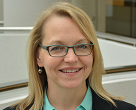Your gift is 100% tax deductible.
Yogurt & Cheese May Lower Risk of ER- Breast Cancer
CPS-II Nutrition Study data showed that it's unlikely that eating dairy or foods with calcium increases a woman’s risk for common types of breast cancer.
The Challenge
Dairy products have been thought to influence breast cancer in several, and sometimes opposite, ways.
- Some studies have suggested that certain elements of milk and yogurt, including calcium and vitamin D, have anti-cancer properties.
- Other studies have tested different elements in these foods, including branched chain amino acids, and suggested they may help cancers form and grow.
Some scientists have looked at natural sex hormones in cows and in the hormonal drugs they are given to see if they increase the risk of breast cancer.
Most studies have not looked at specific types of dairy products or at the effect of these foods on specific subtypes of breast cancer, like hormone-receptor-positive and hormone-receptor-negative breast cancer.
The Research
The Diet and Cancer Pooling Project (DCPP), is an international consortium of prospective cohort studies, including the American Cancer Society’s (ACS) Cancer Prevention Study II (CPS II) Nutrition Cohort. A group of scientists from around the world, led by You Wu, PhD, in the Department of Nutrition at the Harvard T.H. Chan School of Public Health in Boston published a study about their analysis of 21 cohorts, which included over 1 million women. Two members of that group were ACS Senior Scientific Director in Epidemiology Research, Marjorie McCullough, ScD, RD, and former ACS epidemiologist Mia Gaudet, PhD.
The goal was to learn more about the precise dairy and high-calcium foods that may increase or decrease the risk of developing breast cancer.
We found a ‘modest’ inverse association between ER-negative breast cancer and eating higher amounts of yogurt and cottage/ricotta cheese. That means women who ate more of these foods had a moderately lower risk of developing ER-negative breast cancers, which tend to grow fast and have fewer treatment options. Interestingly, we only saw this cancer protection in studies that did not include women in the US."
Marjorie McCullough, ScD, RD
Senior Scientific Director, Epidemiology Research
Population Science, American Cancer Society

They found:
- Women who ate or drank higher amounts of milk, yogurt, hard cheese, cottage/ricotta cheese, ice cream, and dietary calcium, were unlikely to have an increased risk of breast cancer, and women with the highest dietary intake of calcium (from all sources) had a very slightly lower risk of breast cancer.
- Women who ate higher amounts of yogurt and cottage/ricotta cheese had a modestly lower risk of developing ER-negative breast cancer. These results were not found in studies with women in Canada or the US. The reduced risk was only found in the cohort studies from Australia, Italy, Japan, Netherlands, and Sweden. The authors speculate that these regional differences may be due to differences in food regulations, food processing, farming practices, or nutrient content.
Their results were generally consistent across studies and subgroups of women based on their menopausal status, BMI, or age when diagnosed.
Why It Matters
The findings from this large, international study suggest that adult women who eat larger amounts of certain higher-fermented dairy foods, including yogurt, cottage cheese, or ricotta cheese may have some protection from developing a hormone-negative type of breast cancer. These results need more study in more racially/ethnically diverse populations.
Currently, the American Cancer Society Guideline for Diet and Physical Activity does not make specific recommendations on dairy food consumption to help prevent cancer.
- Related resources
- For researchers



